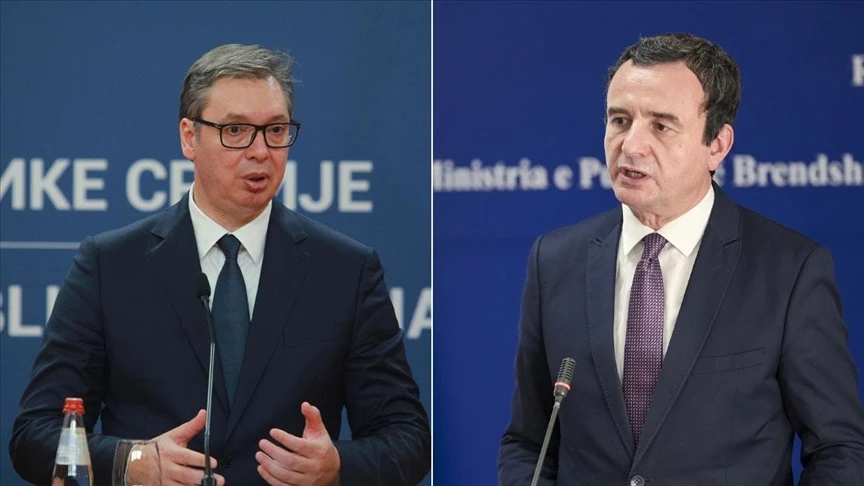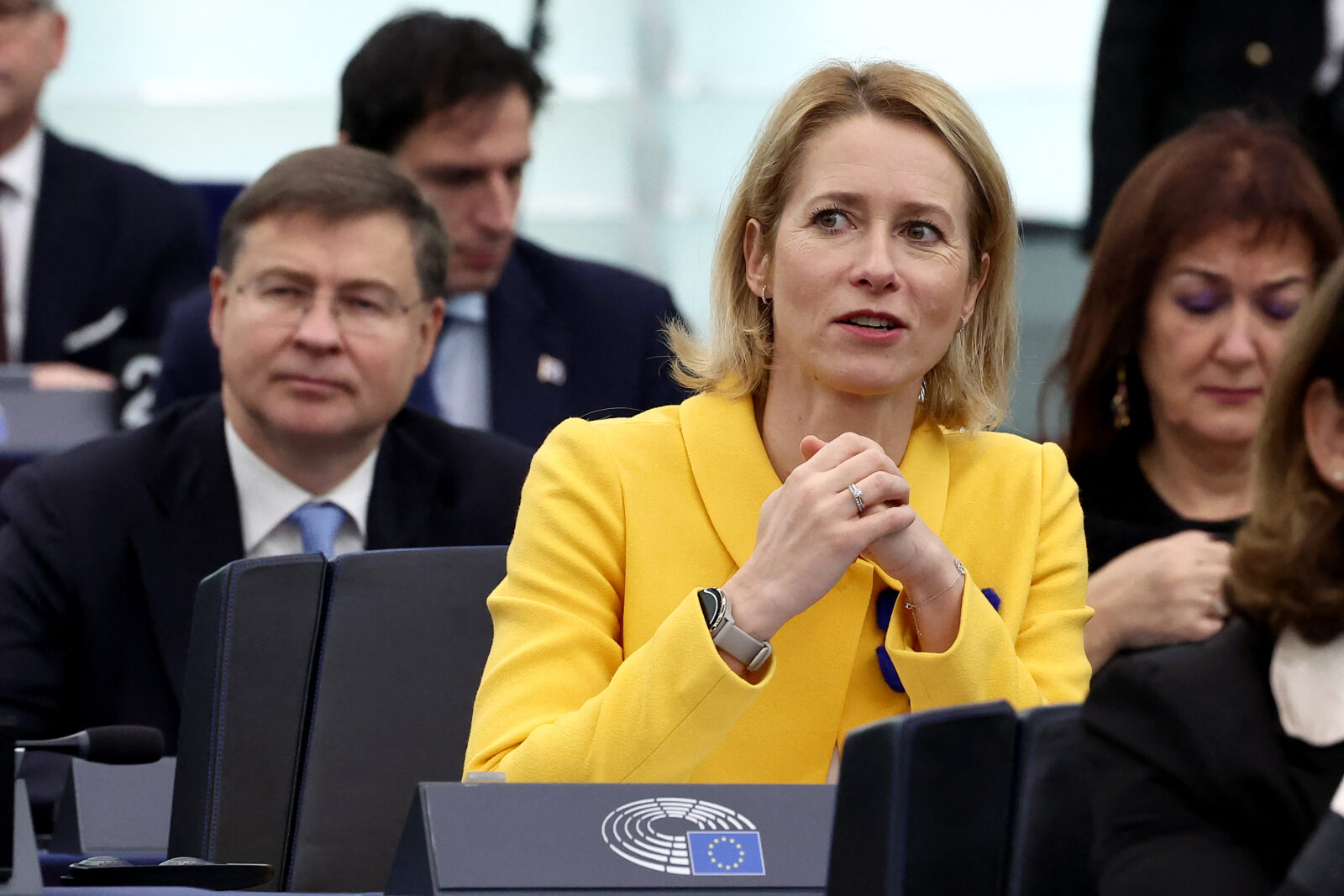EU’s new foreign policy chief urges Serbia and Kosovo to normalize relations or risk membership
 This combination of pictures shows Kosovo PM Albin Kurti (R) and Serbian President Aleksandar Vucic (L). (AA Photo)
This combination of pictures shows Kosovo PM Albin Kurti (R) and Serbian President Aleksandar Vucic (L). (AA Photo)
The European Union’s new foreign policy chief, Kaja Kallas, reiterated that the path to EU membership for Serbia and Kosovo lies through the normalization of relations based on the Ohrid Agreement.
Kallas made the statement after meeting separately with Serbian President Aleksandar Vucic and Kosovo Prime Minister Albin Kurti in Brussels on Tuesday.
Serbia not interested to impose sanctions on Russia
Vucic, addressing the meeting on social media, stressed the need for dialogue with Pristina but noted that the discussion primarily focused on sanctions against Russia.
“If we impose sanctions on Russia and accept Kosovo’s independence, all doors could be opened. But we are not interested. We are happy with our current stance,” Vucic said, emphasizing Serbia’s position.
Kurti highlighted European integration and relations with Serbia as key topics of discussion.
“Kallas is at the right time and in the right place,” said Kurting adding that he informed her about a Nov. 29 bomb attack on the Iberian Lepenci water channel.

Normalization struggles with Ohrid Agreement
The Ohrid Agreement, reached on Feb. 27, 2023, after marathon talks in Brussels, aims to normalize ties between Serbia and Kosovo.
The 11-point agreement calls for mutual recognition of documents like passports and license plates, but the deal stalled after Vucic refused to sign. Recent tensions, particularly in northern Kosovo, have further delayed progress.
The EU-backed Belgrade-Pristina Dialogue, initiated in 2011, aims for a legally binding agreement to resolve disputes and pave the way for both countries’ EU integration.
While most U.N. member states, including the US, U.K., France, Germany, and Türkiye, recognize Kosovo’s independence, Serbia continues to claim Kosovo as its territory.
Kallas will now oversee the mediation of this dialogue throughout her five-year term, working towards finalizing the agreement and advancing the region’s EU prospects.



